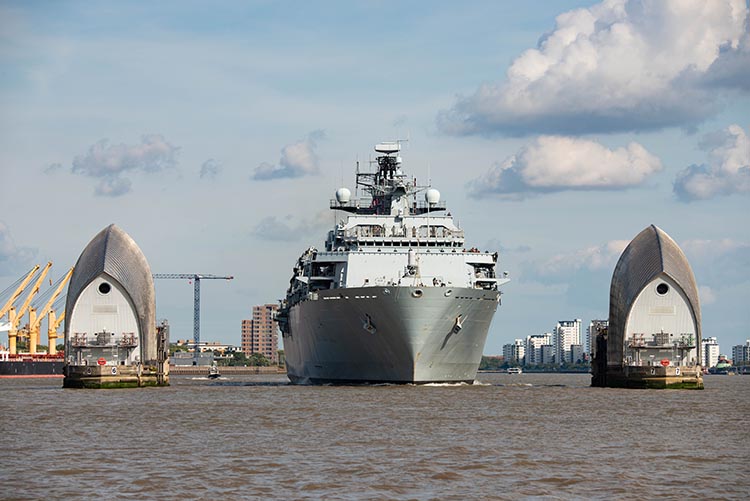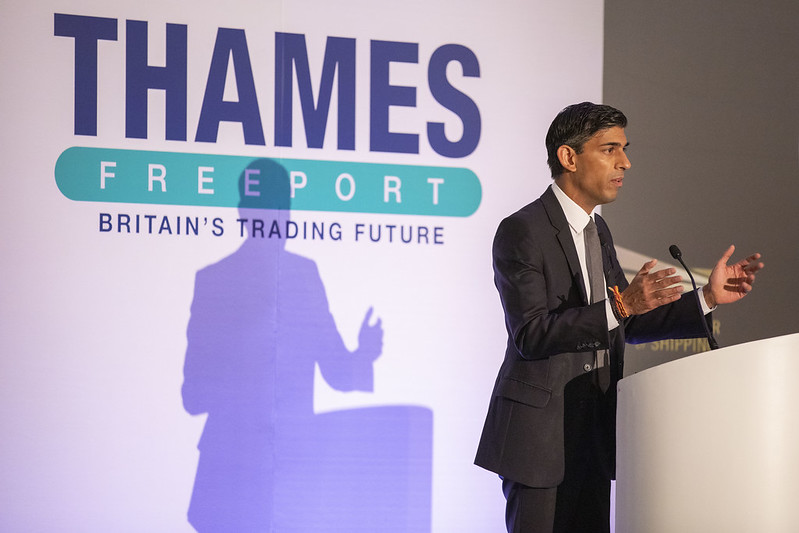Shipping Week showed why maritime careers rank among the UK’s most desirable

When the world of shipping comes together to shape the industry of tomorrow, it comes sailing to the UK (@MaritimeUK)
It is here, at London International Shipping Week (LISW), where industry leaders across the world examine how we reach net zero, how we drive growth in a disrupted world, and how we ride the AI-powered waves of the future.
And they come here not because the UK has historically been the natural home for maritime, they come because this island is still the prime global location for the industry, and likely always will be.
LISW for 2021 has since come and gone. However, it serves as a reminder to our students, job seekers, and switchers, that a career in UK maritime is one that is world-leading, and has the power to make a difference across the globe.
With at least 170,000 maritime jobs expected in the UK, resulting from freeports alone, we hope this is a message heard loud and clear, across further education and beyond.
During LISW, more than 300 school children saw what these future jobs could look like, on board HQS Wellington, the WWII Dunkirk veteran now floating on the Thames.
Maritime UK brought representatives from the Royal Navy, universities like Plymouth, who recently placed first in the globe for marine on the Times Higher Education Impact Rankings, as well as the Royal Fleet Auxiliary, City Cruises, Thames Skills Academy and more.
The youngsters saw how they venture the world’s seas, study at the marine institute that first discovered microplastics, and provide humanitarian aid to all corners of the globe.
On board that ship, these children saw that UK maritime is a careers playground, full of some of the most exciting opportunities the world has to offer.
LISW also gave us a glimpse into the green future of the industry, on HMS Albion, a 18,500 tonne Royal Navy ship moored on the Thames for the week.
On the ship’s flight deck, projects designing a fully automated, green fleet of submarines; and research into machines powering boats by using offshore wind turbines as if they were electronic charging points for cars, were among 55 initiatives awarded £23 million by government ministers.
And where 90% of global trade is carried over the waves, shipping, thanks to its scale, will be a focal point for global leaders at COP26 and beyond for emissions reduction. So the tide of investment and innovation has only just begun.
When people think about maritime, they may think about Titanic, or even the Evergiven. But it won’t be long before they think of the giant Teslas of the seas.
And the industry is on the lookout for the skills to build them. These range from engineers and programmers, to creative designers and entrepreneurs looking to make their difference to the world, and take their share of the shipping emission reduction technologies market, predicted to be worth $15 billion by 2050.
For the wider UK industry, which grew by 19% between 2017-19 according to preliminary CEBR figures, the skills net is being cast even wider still.

Not every event during LISW took place on a boat. In fact, LISW kicked off at London’s Stock Exchange, at the opening of the financial markets, in recognition of the country’s world-leading role in financing the global industry.
And across 13-17th September, LISW was marked at events in offices as varied as law firms, communications providers, geopolitical risk agencies and scientific consultancies, underscoring maritime’s reach across dozens of professions.
For job seekers who associate maritime with being at sea, LISW showed anyone considering a career in professional services could find a long and rewarding career in the industry, without ever getting their feet wet.
LISW will next arrive in London in 2023, but until then, those across the further education sector can see the full range of careers and opportunities the career has to offer on Maritime UK’s website.
Crucially, LISW also celebrated how far the industry has come on diversity and inclusion.
Maritime UK established the country’s first network across the transport industry for women, where women from rail, maritime and aviation can come together to discuss mental health, progression, careers and best practice.
An annual ‘Pride in Maritime’ day was set up, and the sector also came together to discuss how we can ‘call out, call in, and call on’ in solidarity with our ethnic minority staff.
Like other industries, we still have a long way to go on diversity. But LISW showed that we are all on the same page.
And where maritime can be home for people with different skills and aspirations, it can also be a home for everyone, no matter their background, too.
Lorna Wagner, Programme Manager, People & Skills at Maritime UK











Responses